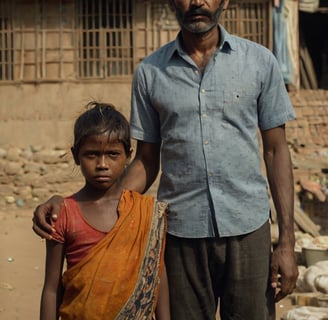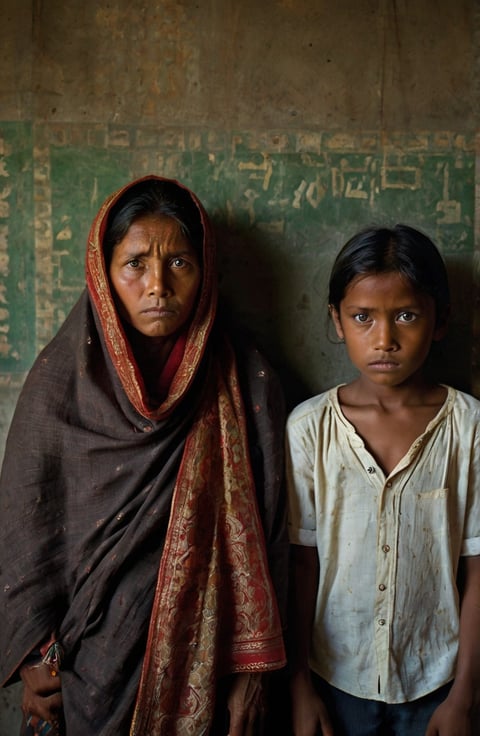
Cultural Differences in Parental Stress: A Global Perspective
Explore the complex cultural differences in parental stress across the globe. Discover how parenting styles, societal expectations, academic pressures, and community support shape the experiences of parents worldwide.
PARENTING STRESS
2/6/20255 min read
Parental stress is a universal experience, but cultural differences in parental stress create significant variations in how parents perceive and cope with it across different societies.
Factors such as parenting styles, societal expectations, cultural values, and access to social support all play crucial roles in shaping parental stress. Understanding these differences is key to developing culturally sensitive interventions and support systems for parents worldwide.
The interplay between cultural expectations and parenting stress is complex, influencing not only parental well-being but also child development and family dynamics.
Studies such as what is parental stress, the science behind parental stress, common triggers of parental stress and how to recognize them, parental stress vs. burnout, the hidden costs of parental stress on family dynamics, and balancing work and family provide valuable insights into these cultural variations and their impact on families.
The Role of Parenting Styles in Cultural Differences in Parental Stress
Parenting styles vary across cultures, influencing how stress manifests in parents.
Research by Cai (2024) highlights that collectivist cultures, such as those in East Asia, emphasize obedience and community values, leading parents to experience stress related to social conformity and academic success.
In contrast, individualist cultures, like those in the United States and Western Europe, focus on independence, with stress often stemming from balancing autonomy with parental responsibilities.
These differences highlight the cultural pressures that shape parental expectations and the subsequent emotional toll on parents.


Authoritative vs. Authoritarian Parenting Styles
Authoritative parenting, which balances warmth and discipline, tends to lower parental stress across cultures, as it fosters mutual understanding between parents and children.
Authoritarian parenting, common in many Asian and Middle Eastern cultures, heightens stress due to strict discipline and high expectations, often leading to strained parent-child relationships.
In Western societies, permissive parenting can cause stress due to a lack of structure and behavioral challenges, forcing parents to adopt alternative disciplinary methods.
In collectivist cultures, stress can intensify because of communal expectations, making parents anxious about social perception and acceptance.
In individualist cultures, we often struggle to balance career aspirations with parental responsibilities, creating unique pressures for working parents.
Parents in cultures that prioritize autonomy may feel stressed over their child's independent decision-making, fearing they may drift from traditional family values.
The pressure to conform to cultural expectations—whether emphasizing obedience or independence—creates unique but equally significant stressors for parents everywhere.


The Impact of Societal Expectations on Parental Stress
Lansford (2021) highlights how cultural norms dictate parental roles, significantly shaping stress levels. When gender roles are rigid, mothers bear the primary caregiving burden, leading to heightened stress.
On the other hand, societies that embrace egalitarian parenting see a more balanced distribution of responsibilities, which can alleviate stress.
Recognizing these differences helps us advocate for better support structures in our communities.


Gender Roles and Parenting Stress
In patriarchal societies, mothers face immense pressure to manage household duties and child-rearing, increasing stress due to societal and familial expectations.
Fathers in traditional cultures may experience stress related to financial responsibilities and the societal expectation to be the authoritative figure.
Societies that encourage shared parenting responsibilities report lower stress levels overall, as equitable division of labor reduces strain on both parents.
Countries with progressive parental leave policies allow working parents more flexibility, reducing stress.
Conversely, in societies with minimal workplace support, stress among parents—especially working mothers—often intensifies.
Cultural stigmas around fathers taking on caregiving roles can lead to stress in men who want to be more involved but face societal resistance.
For dual-income families, stress often stems from a lack of institutional support, requiring parents to seek alternative childcare solutions.
The Influence of Cultural Norms on Parental Expectations
Chung (2012) examined how cultural expectations influence stress, comparing American and Korean mothers of clinic-referred youth.
Korean mothers reported higher stress levels despite fewer behavioral problems in their children, largely due to societal pressure to uphold strict parenting standards.
This shows that stress often stems from perception rather than actual child behavior. When we step back and assess our own expectations, we can find ways to manage stress more effectively.


Academic Expectations and Parental Stress
In Asian cultures, high parental expectations regarding academic performance are a leading cause of stress, as parents place immense pressure on their children to succeed.
In Western cultures, where extracurricular activities and personal development are emphasized, stress arises from balancing multiple responsibilities.
Support systems—such as community involvement and flexible educational structures—help mitigate stress for parents in various cultural settings.
Collectivist societies often tie parental success to a child's academic achievements, increasing anxiety when children do not meet expectations.
Individualist cultures prioritize a child’s holistic development, leading to stress over balancing academic, social, and personal growth.
The push for academic excellence can strain parent-child relationships, particularly in cultures where success is seen as a direct reflection of parenting.
In cultures that value well-rounded development, parents often struggle to juggle academic, emotional, and career aspirations for their children.


Social and Community Factors Affecting Parental Stress
Lo et al. (2023) emphasized how community and social factors influence parental stress. Strong support networks alleviate stress, while isolation exacerbates it.
A sense of belonging and external resources can significantly improve parental well-being.
The Role of Community Support
Collectivist societies benefit from strong family ties, easing stress through shared responsibilities.
Individualist cultures rely more on professional services and peer networks, which can be both beneficial and isolating.
Access to childcare, mental health resources, and parenting education programs significantly reduces stress levels.
Communities that encourage collective caregiving—such as grandparents playing an active role—report lower parental stress.
Government support, such as childcare benefits and early education programs, eases stress, particularly for working mothers.
Strong neighborhood support fosters a sense of belonging, reducing stress through shared experiences.
When social support is lacking, stress may be exacerbated by feelings of isolation, financial strain, and a lack of accessible resources.


The Cultural Impact of Perceived Parental Expectations on Student Stress
Talha et al. (2020) explored how cultural expectations affect student and parental stress. High parental expectations often lead to reciprocal stress within families, reinforcing a cycle of anxiety.
By setting realistic expectations and fostering open communication, we can create a healthier environment for both parents and children.
How Cultural Expectations Affect Student and Parental Stress
In collectivist cultures, children feel immense pressure to meet parental academic expectations, which increases stress for both parents and students.
In individualist societies, students struggle with balancing academic achievements, personal growth, and extracurricular activities.
Parental stress can be alleviated through open communication, realistic expectations, and cultural adaptations that allow for greater flexibility.


Conclusion: Understanding Cultural Differences in Parental Stress
Cultural differences in parental stress reveal that parenting styles, societal expectations, academic pressures, and community support systems shape how stress manifests.
By acknowledging these variations, we can develop targeted strategies to support parents more effectively. Addressing cultural differences in parental stress is essential for fostering healthier families worldwide.
Whether through structured parenting programs, shifts in gender roles, or stronger community engagement, ensuring that parents across all cultures receive the support they need is critical.
Future research and policies must continue exploring ways to balance cultural parenting expectations with realistic stress management strategies, so parents everywhere can thrive.
References:
Lansford, J. E. (2021). Annual research review: Cross-cultural similarities and differences in parenting. Journal of Child Psychology and Psychiatry, and Allied Disciplines, 63(4), 466–479.Chung, K.-M. (2012). Parenting stress and child behavior problems among clinic-referred youth: Cross-cultural differences across the US and Korea. Child Psychiatry & Human Development.
Lo, C. K. M., Chen, M., Chen, Q., Chan, K. L., & Ip, P. (2023). Social, Community, and Cultural Factors Associated with Parental Stress in Fathers and Mothers. International Journal of Environmental Research and Public Health, 20(2), 1128.
